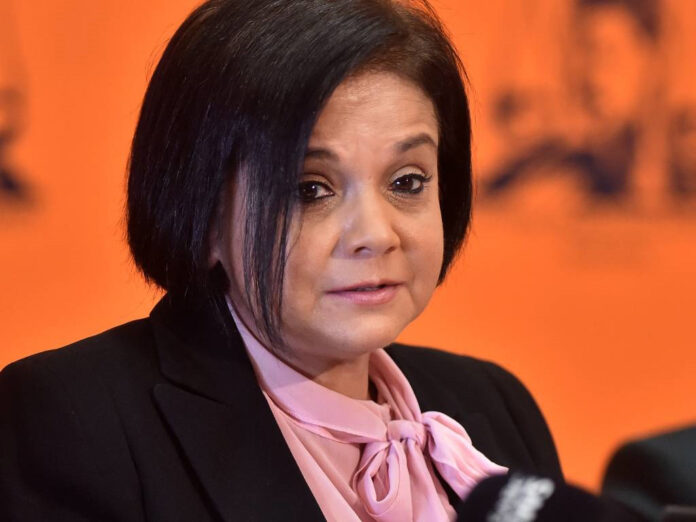NPA boss, Advocate Shamila Batohi, has offered her latest instalment of excuses on why the NPA is in disarray under her watch.
This time around, she has blamed her subordinates, the provincial directors of public prosecutions (DPPs) for running amok.
Appearing before parliament’s standing committee on public accounts (Scopa) on Wednesday, Batohi said her involvement in cases was very minimal.
Puts blame on DPPs
Instead, she insisted that the people who hold tremendous power in deciding whether or not to charge were the DPPs.
Batohi’s blame-shifting comes as she is under fire for an NPA that has been bungling high profile and politically toxic cases in the courts.
Scopa members were grilling her like good steak and boerewors of National Braai Day as public confidence on the NPA continues to take a nosedive under Batohi’s stewardship.
The latest egg on Batohi’s face was the dismissal of the NPA’s illegal extradition of former Free State premier Ace Magashule’s PA Moroadi Cholota from the US, which the court ruled as unconstitutional and unlawful.
Quizzed on such as many other similar cases, Batohi ran for the hills, leaving the defenceless DPPs shouldering all of the blame.
They are decision-makers, not her
“To be clear, the DPPs are very powerful individuals in the NPA. The heads of the provinces have control in the sense that they manage everything, they are the leaders,” said Batohi.
“In terms of the NPA Act, they have the authority to decide on the prosecution of cases. Except in a very few cases where the NDPP does like racketeering cases, like terrorism cases and terror financing. Those cases come up to the NDPP.
“But the DPPs are the ones that decide on the rest, they run the provinces. And of course they are very senior members of the NPA. And as the National Director, I must defer to them to make sure that they are managing their provinces well. That they are doing what they need to do, that they’re ensuring that they have the right prosecutors. That they do the necessary risk assessment on cases and that they are managing cases properly.”
Batohi said on her part at head office, she had established an accountability model to ensure that DPPs do not run amok.
More often than not, she continued passing the blame. She got surprises with the rest of the public when high profile cases collapse like the proverbial house of cards in the courts.
High profile cases
“Of course, now at the head office we have identified high profile cases. And DPPs are required to send to the national office risk assessment. What are they doing to identify the risk properly? Whether it is capacity of needing more prosecutors. Whether it is witness risk,” she told the bewildered members of Scopa.
“Whatever it is, identify it. What are your mitigating factors? And that happens now with all the high-profile cases? It comes to the national office so that we do not get embarrassed by high profile cases that do not succeed in court.
“But of course, if the DPP does not bring anything to the notice of the national director, the NDPP (Batohi) will only become aware when things go wrong. And it will be about damage control. But we are trying to minimise that to make sure we have a risk-mitigation plan in place.”
Adamant on making excuses, Batohi said when she took over the helm at NPA six years ago amidst much fanfare, she was the new broom destined to sweep corruption clean. She never bargained for just how tough it is to prosecute corruption cases.
“We know that globally, corruption-related cases take years. If one looks at the Steinhoff case, which was also investigated by the German authorities which is much more well-resourced than us in South Africa, they indicted one year before we did.
Corruption cases are complex
“So, corruption cases, for various reasons, the complexity of it and the fact that we as well as prosecutors, we want to make sure that cases are as watertight as possible when we go to court with them,” she said.
“We have got to make sure that we tick all the boxes. Because the risk of failing in a prosecution is high. There are 10 cases that have almost destroyed the NPA’s reputation.
“So, we really need to make sure that when we take these cases to court, we are as trial-ready as possible. And that takes time.”
Batohi also moved to correct a statement in which she had said the NPA was infiltrated.
She said what she meant to say was there were individuals within NPA who had not bought into her leadership style and vision to uphold the rule of law.



